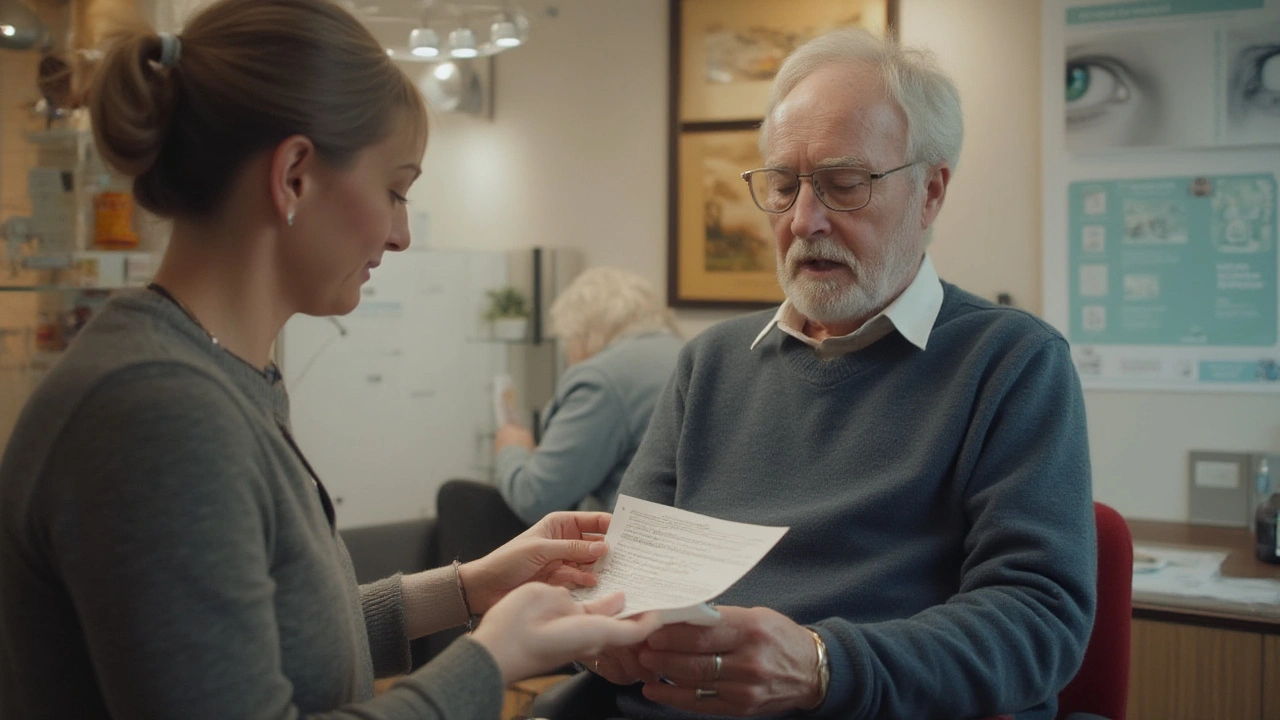Ophthalmologist Tips: Straightforward Advice for Healthier Eyes
Ever wondered if you're actually doing enough to protect your eyesight? You're not alone. Most of us blink past little warning signs until things get blurry—literally. Good news: you don’t need a medical degree to follow essential eye care tips used every day by real ophthalmologists.
First off, staring at screens is part of life, but those screens are brutal on your eyes. An easy trick? Try the 20-20-20 rule. Every 20 minutes, take 20 seconds to look at something 20 feet away. It forces your eyes to refocus, which helps you skip that tired, dry, heavy feeling that creeps up after a Netflix or work binge.
Tired of dry eyes? Simply blinking more helps, but so does running a humidifier if you’re in an air-conditioned or dry room. Artificial tears are another quick fix—but skip the ones with redness removers. Eye docs warn those just shrink vessels temporarily and can make things worse over time.
Contact lens wearers—this one’s for you. If sleeping in your contacts feels tempting, skip it. Overnight wear cranks up your infection risk and nobody wants a corneal ulcer. Also, swap out your lens case regularly and wash your hands thoroughly before handling lenses. It sounds obvious, but bad habits are the fast track to nasty eye problems.
If you find yourself squinting to read or struggling with nighttime glare, don’t tough it out. An eye exam can spot changes in your vision before they turn into bigger issues. Ophthalmologists say regular checkups aren’t just for finding glasses; they catch silent problems like glaucoma early, which could save your sight down the line.
Nutritional choices make a real difference. Loading up on green leafy veggies, nuts, eggs, and fish gives your eyes a steady supply of vitamins, lutein, and omega-3s. These aren’t miracle foods, but studies keep showing they help slow age-related decline and ward off dry eyes.
Sun protection matters for your eyes, too. UV exposure adds up, even on cloudy days. Grab sunglasses labeled UV400—they block both UVA and UVB rays. Cheaper shades without real protection won’t cut it, so don’t just trust how dark the lenses look.
Don’t ignore any sudden vision changes—there’s no harmless ‘wait and see’ with things like flashes, floaters, or a dark curtain creeping in your vision. That’s emergency territory for ophthalmologists. Fast action can be the difference between a quick fix and lasting damage.
There’s a lot more to eye health than reading charts at the doctor. Small daily choices stack up. If you keep these practical tips in your toolkit, you’re actually giving your future vision a fighting chance—and that’s what every eye doctor wants.
Ophthalmologist Advice: Safe Dosage and Use of Carbonic Anhydrase Inhibitors
Expert advice on safe use of carbonic anhydrase inhibitors for eye care, including dosing, interactions, follow-up steps, and side effect management tips.
